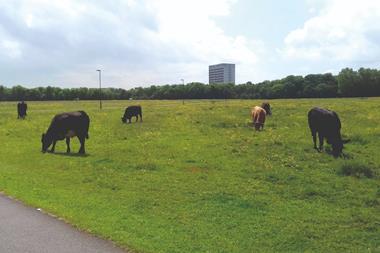The answer, as we all know, is ‘of course not, rent caps would be the end of the world as we know it, a disaster!’ Or perhaps not.

In its updated planning guidance, the Department for Communities and Local Government recently acknowledged the need to consider the appropriate level of planning obligations for the private rented sector (PRS), taking into account the economics of such schemes. It goes on to say “some privately rented homes…are intended for long-term rental. The economics of such schemes differ from build-to-sale and should be determined on a case-by-case basis”. It further notes that local planning authorities should consider the appropriate level of planning obligations to ensure that PRS schemes (which improve the diversity of housing while meeting local needs) remain viable.
So, at last, there is official acceptance that to deliver meaningful quantities of new PRS stock and unlock the serious levels of institutional equity waiting to build it, local authorities must recognise and accommodate the PRS financial model.
The next issue to discuss is housing waiting lists and the ever-growing holding pattern for those unfortunate enough to have been priced out of the private sector. All new schemes are required to allocate an element of intermediate (20% discount to market rent) and social rent (35%-50% discount to market rent), with viability achieved through a discounted sale price to the housing association. The default position at the point of application for planning is to get away with as little contribution to affordable housing as possible, so planning officers justifiably fight hard to hold their ground.
Then we need to throw politics into the pot. With an imminent election, we are getting from Labour the promise of rent caps with three-year tenancies, and from the Conservatives the extension of the right to buy to residents of housing association properties. The former would be popular with those struggling to find suitable and affordable accommodation, but would drive many private landlords away, and the latter would be popular with every qualifying tenant, but would give housing associations the problem of replacing stock at full cost with discounted income.
This debate is all about the need to more than double the annual supply of new homes for local residents, wherever they may be around the UK. Putting aside for the moment the sizeable hurdles of a lack of suitable land, scarcity of skills and build-cost inflation, how can we deliver more affordable homes with the resources that are available? Part of the solution must be to allow the PRS to help with the delivery, ownership and management of the intermediate and affordable rent element currently defined in section 106 agreements.
Many PRS landlords are already housing tenants who are in full-time employment but would qualify for intermediate or even social rent accommodation. The maximum household income allowed to qualify for intermediate housing is £71,000 for one- or two-bed units, or £85,000 for units of three beds or more. That breaks back to £35,500 for sharers in a one- or two-bed unit.
Fizzy Living has more than 500 tenants, with an average age of 32 and earning an average salary of £34,500. So without troubling the government for a penny in grant aid, Fizzy is housing tenants at affordable rents across the portfolio, who are driving local communities, using local services, supporting local businesses, paying their taxes and probably looking forward to casting their votes on 7 May.
It would be a small step to enable qualified PRS landlords to procure and operate the appropriate proportion of flats in a new development (maybe 30%) which have their rent level set (capped) at the rate that it would have been if it had been classed as intermediate or social/affordable rent. The balance of the building would be subject to open market rent levels, with all uses pepper-potted through the building. The only qualifying rule beyond the income ceiling would be that each tenant must be in full-time employment earning three times their share of the rent. No grant, no nominations.
Now let’s have another look at that headline.
Harry Downes is managing director of Fizzy Living






























No comments yet